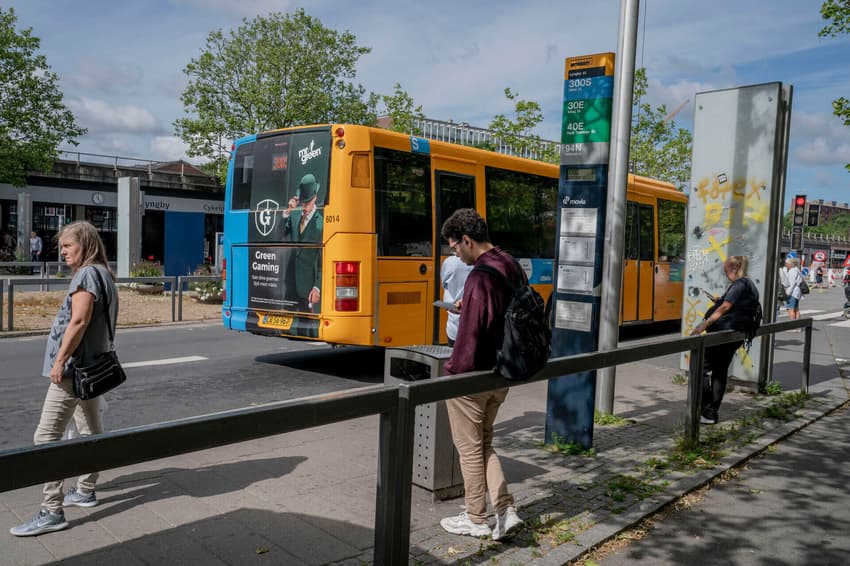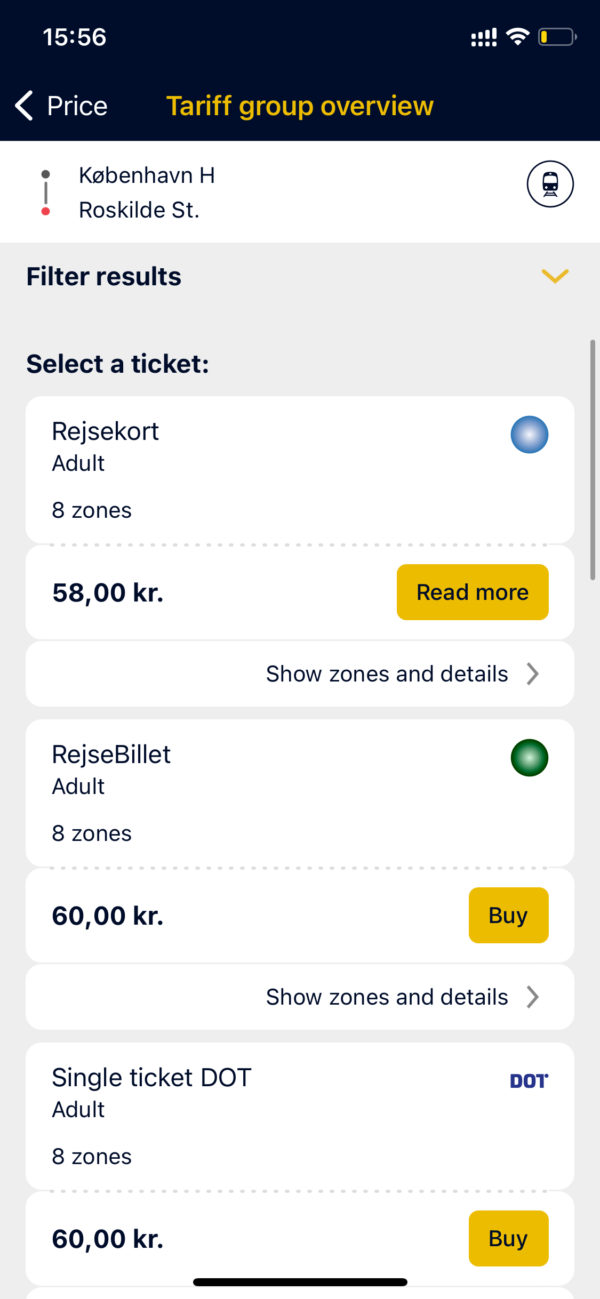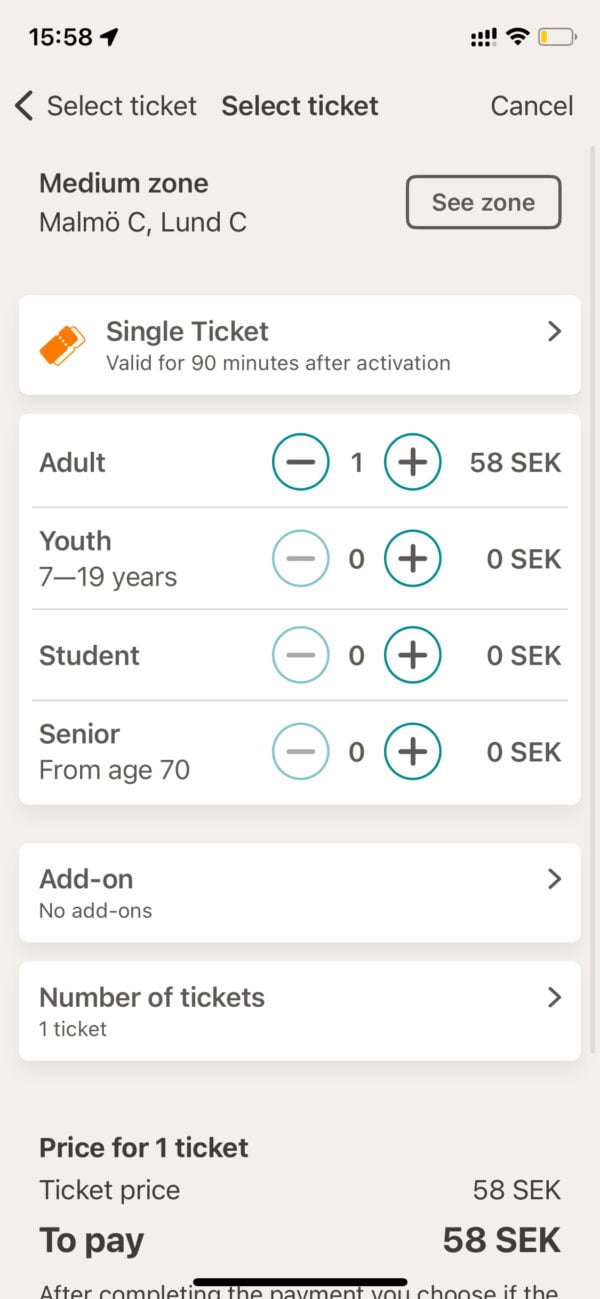How Denmark could copy Swedish model to make trains and buses cheaper

Longer journeys on public transport should be made cheaper, while shorter journeys should cost more, regional authorities in Denmark say.
Danske Regioner, the national body for regional administrations (Regioner) whose remit includes regional public transport, said in a press statement on Wednesday that a new model is favoured which would see fares adjusted in favour of longer trips.
This would be done by introducing a new fare scale inspired by a model used in southern Swedish region Skåne, the head of the Regions’ committee for development Anders G. Christensen told news wire Ritzau.
“It should be both easier and financially more attractive to choose public transport. Both for commuting to work and in your free time,” Christensen said.
Skåne’s public transport system uses three fare zones, which compares with the approximately 100 zones used across the Øresund in the Greater Copenhagen region alone.
A four-zone journey using the Rejsekort travel card costs 34 kroner in Greater Copenhagen, while a comparable trip in Skåne would set you back the equivalent of 19 Danish kroner. This equates to a 79 percent markup in Denmark according to the Danske Regioner press statement.
The cost of travel anywhere within Malmö is 31 Swedish kronor (around 20 kroner).
A “medium-distance” trip – for example from Copenhagen to Hillerød in northern Zealand -- would cost 64 kroner in Denmark and 35 kroner in Skåne, the regions say.
Journey searches conducted by The Local using Denmark’s and Skåne's respective transport apps show that a fare from Copenhagen to Roskilde costs 58 kroner, while a comparable journey in Skåne from Malmö to Lund costs 58 Swedish kronor (38 Danish kroner).


A 30-day pendlerkort or commuter’s season ticket meanwhile costs 1,520 kroner in Greater Copenhagen and 580 (Danish) kroner in Skåne.
Lower prices in Skåne have helped to boost passenger numbers in the Swedish region, according to the press statement.
Several Danish regions have in recent years raised concerns over the viability of regional bus routes amid falling passenger numbers and increasing fuel prices.
READ ALSO: Denmark’s budget-hit buses could pause switch to green fuels
Regions therefore want to tackle this with the model reducing fares for longer distances while increasing the cost of shorter ones, Christensen said.
“Firstly, more expensive short trips would encourage more people to cycle or walk. That would result in less congestion in cities and improve public health,” he said.
“Secondly, cheaper longer journeys will make public transport in greater urban areas and outside of cities more competitive compared to driving,” he said.
The proposal from the regions will be submitted to an expert group appointed by the government. The remit of this group is to boost Danish public transport.
Comments (1)
See Also
Danske Regioner, the national body for regional administrations (Regioner) whose remit includes regional public transport, said in a press statement on Wednesday that a new model is favoured which would see fares adjusted in favour of longer trips.
This would be done by introducing a new fare scale inspired by a model used in southern Swedish region Skåne, the head of the Regions’ committee for development Anders G. Christensen told news wire Ritzau.
“It should be both easier and financially more attractive to choose public transport. Both for commuting to work and in your free time,” Christensen said.
Skåne’s public transport system uses three fare zones, which compares with the approximately 100 zones used across the Øresund in the Greater Copenhagen region alone.
A four-zone journey using the Rejsekort travel card costs 34 kroner in Greater Copenhagen, while a comparable trip in Skåne would set you back the equivalent of 19 Danish kroner. This equates to a 79 percent markup in Denmark according to the Danske Regioner press statement.
The cost of travel anywhere within Malmö is 31 Swedish kronor (around 20 kroner).
A “medium-distance” trip – for example from Copenhagen to Hillerød in northern Zealand -- would cost 64 kroner in Denmark and 35 kroner in Skåne, the regions say.
Journey searches conducted by The Local using Denmark’s and Skåne's respective transport apps show that a fare from Copenhagen to Roskilde costs 58 kroner, while a comparable journey in Skåne from Malmö to Lund costs 58 Swedish kronor (38 Danish kroner).


A 30-day pendlerkort or commuter’s season ticket meanwhile costs 1,520 kroner in Greater Copenhagen and 580 (Danish) kroner in Skåne.
Lower prices in Skåne have helped to boost passenger numbers in the Swedish region, according to the press statement.
Several Danish regions have in recent years raised concerns over the viability of regional bus routes amid falling passenger numbers and increasing fuel prices.
READ ALSO: Denmark’s budget-hit buses could pause switch to green fuels
Regions therefore want to tackle this with the model reducing fares for longer distances while increasing the cost of shorter ones, Christensen said.
“Firstly, more expensive short trips would encourage more people to cycle or walk. That would result in less congestion in cities and improve public health,” he said.
“Secondly, cheaper longer journeys will make public transport in greater urban areas and outside of cities more competitive compared to driving,” he said.
The proposal from the regions will be submitted to an expert group appointed by the government. The remit of this group is to boost Danish public transport.
Join the conversation in our comments section below. Share your own views and experience and if you have a question or suggestion for our journalists then email us at [email protected].
Please keep comments civil, constructive and on topic – and make sure to read our terms of use before getting involved.
Please log in here to leave a comment.